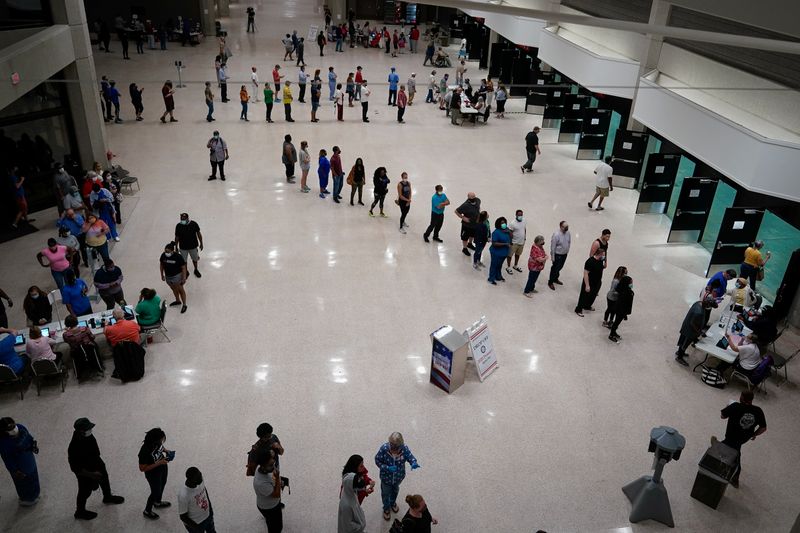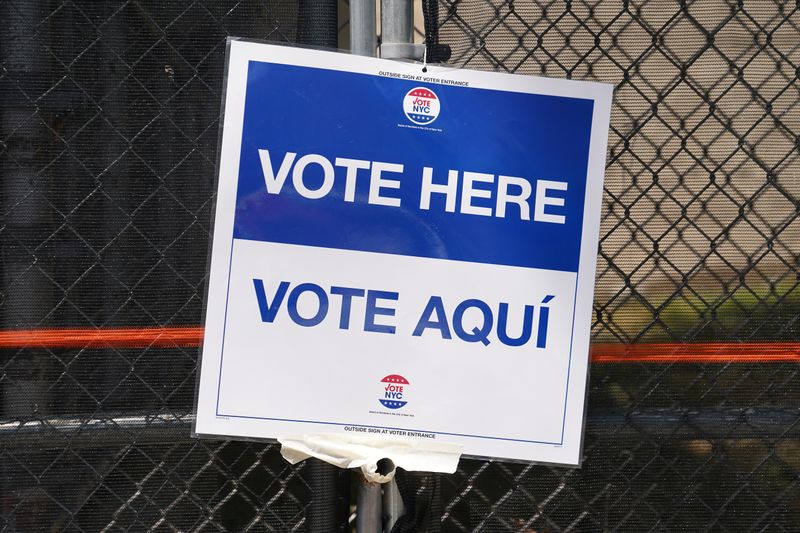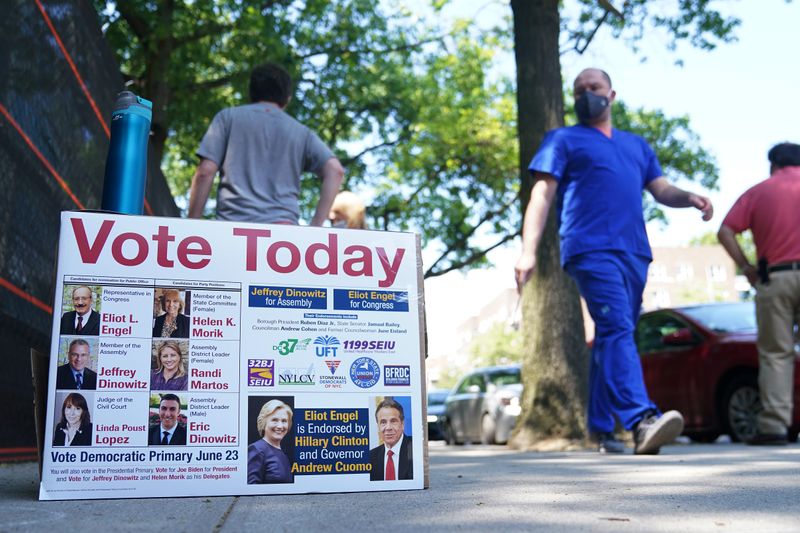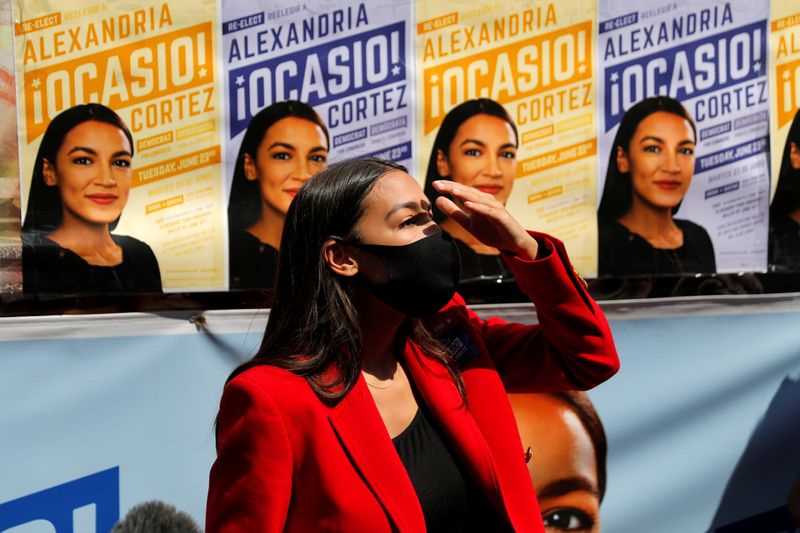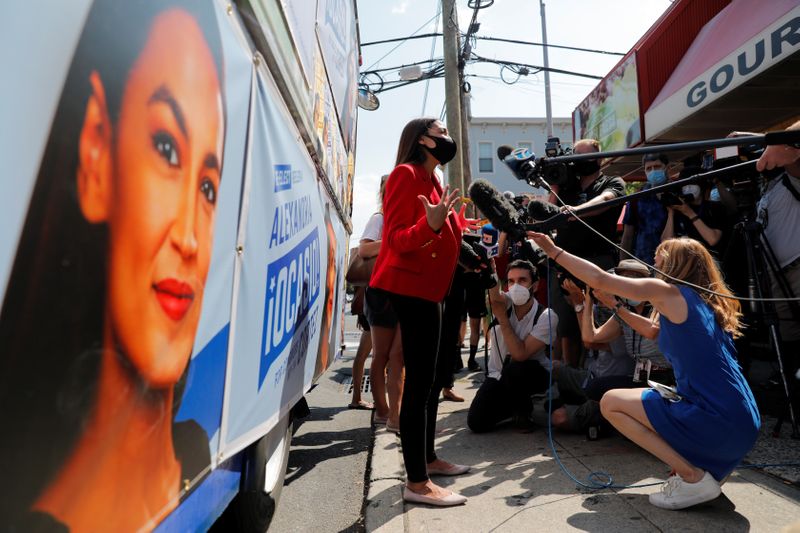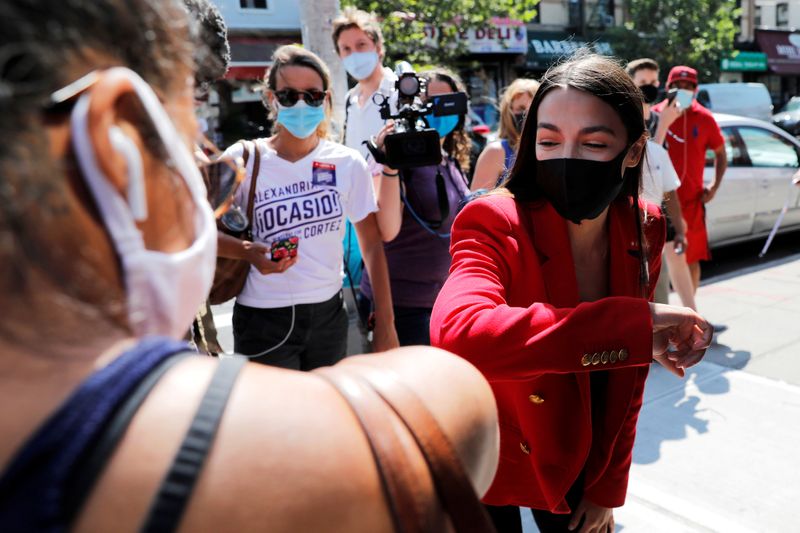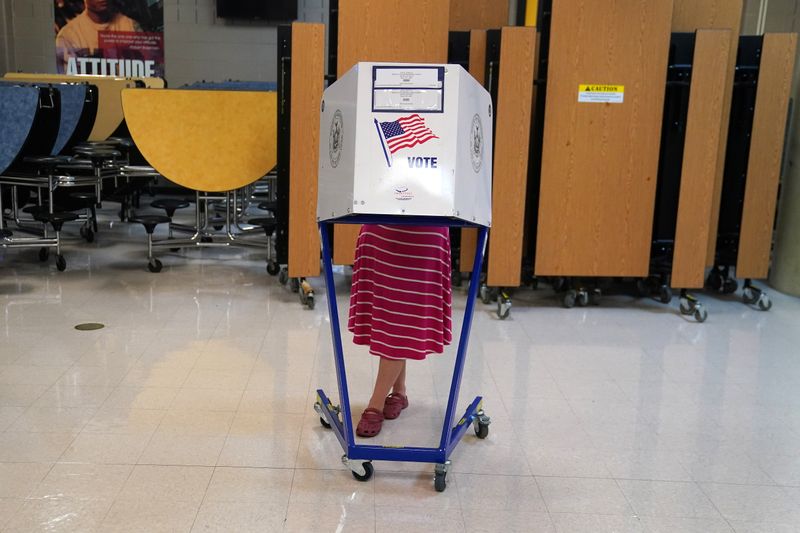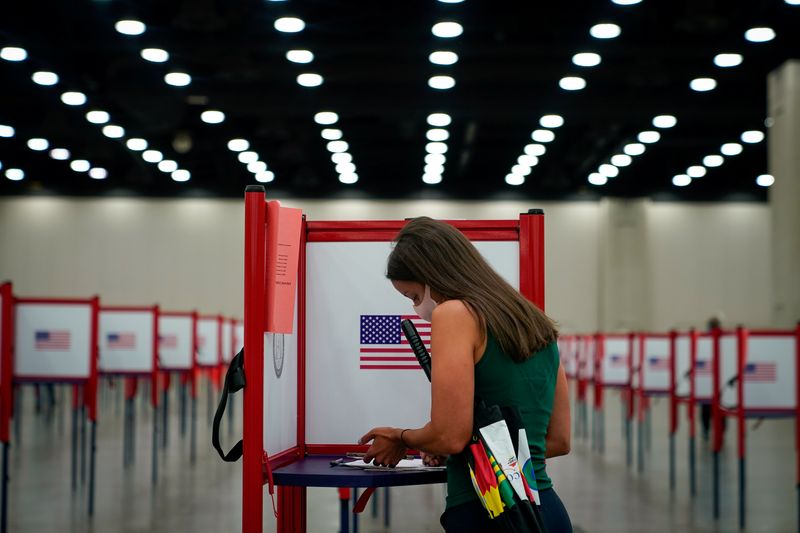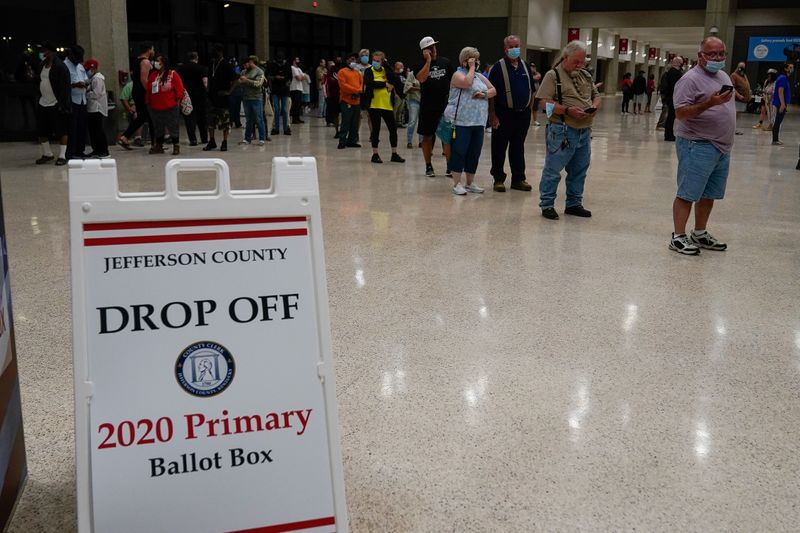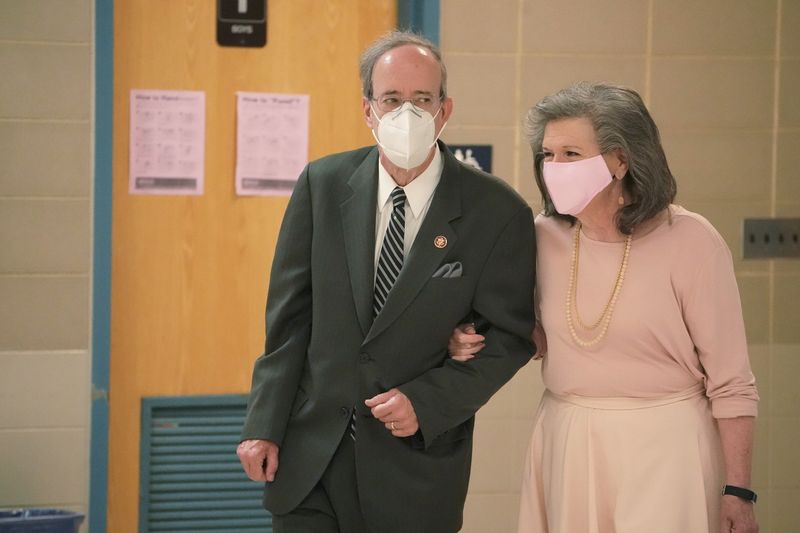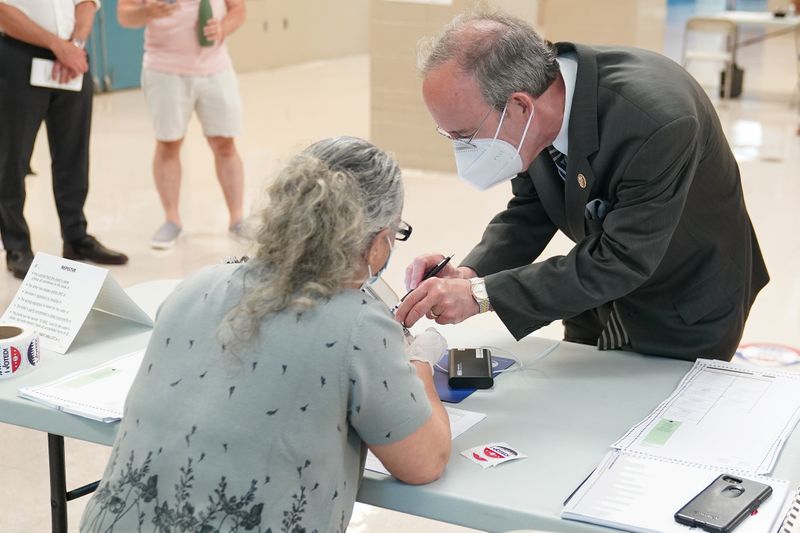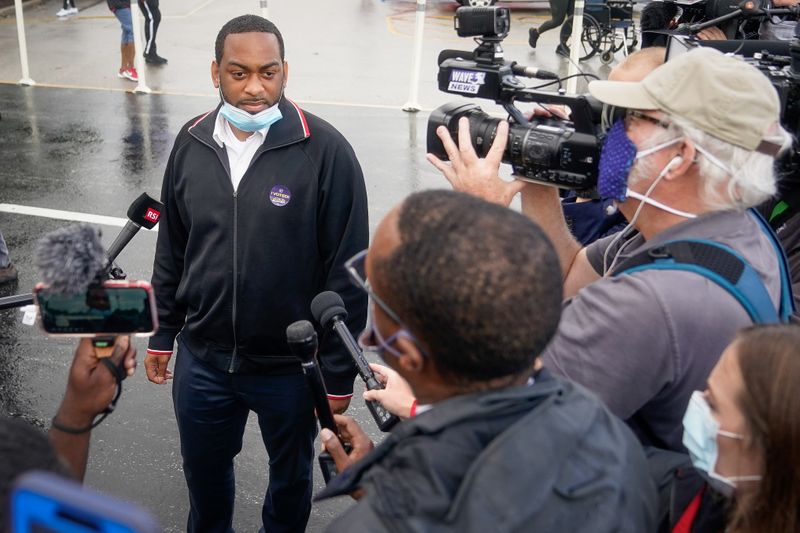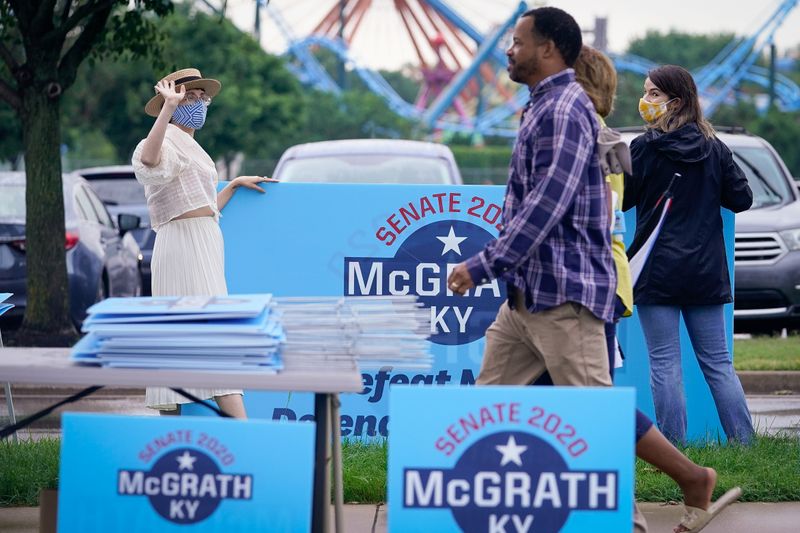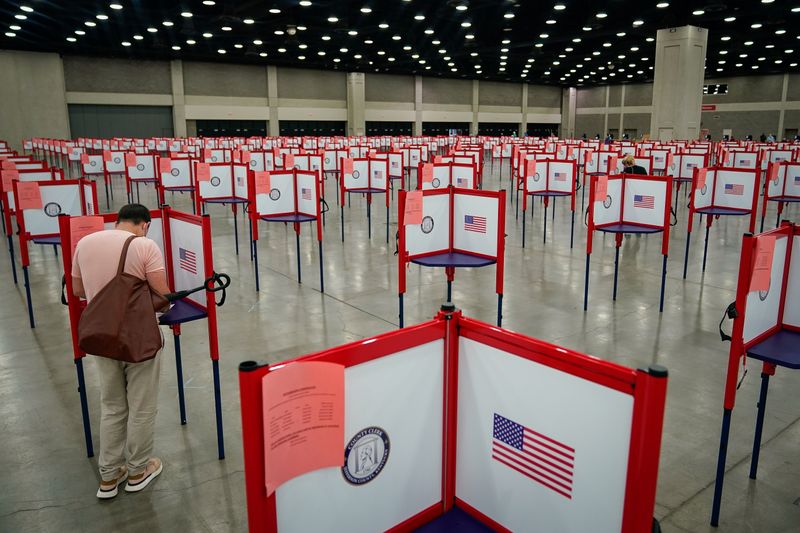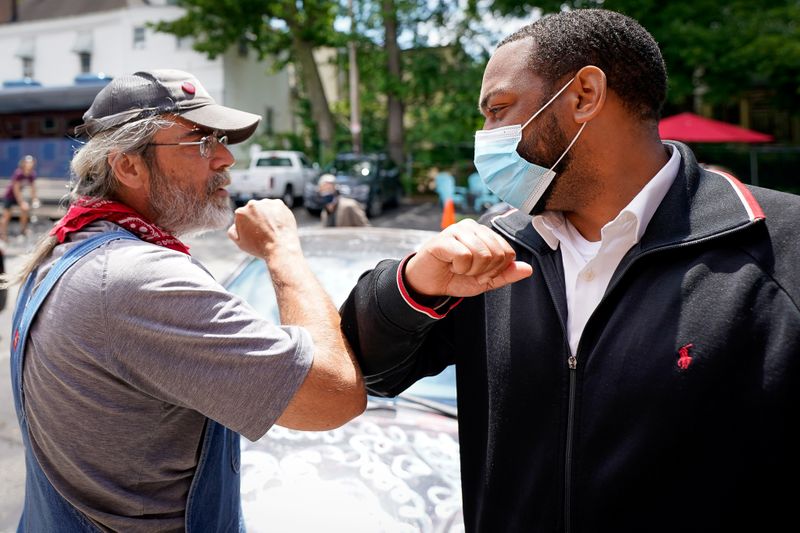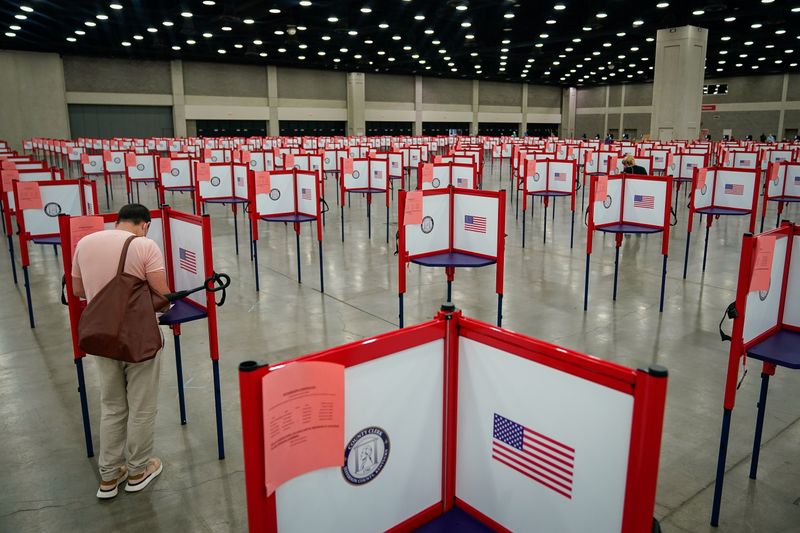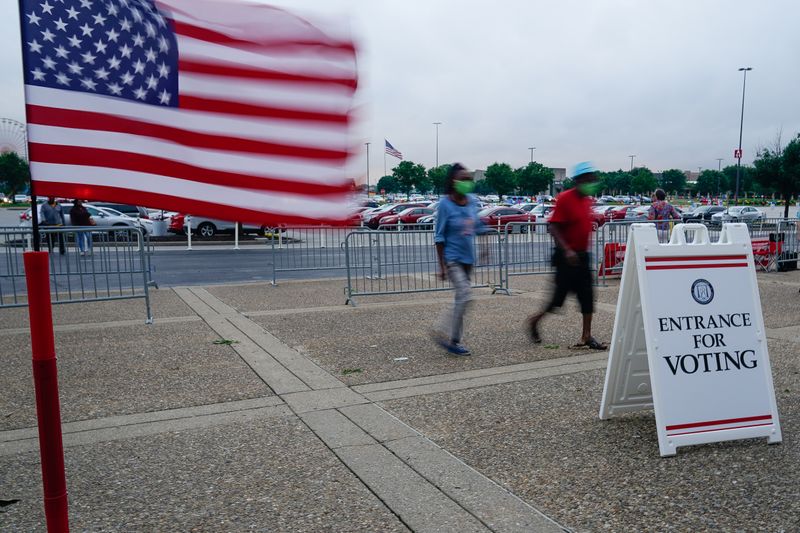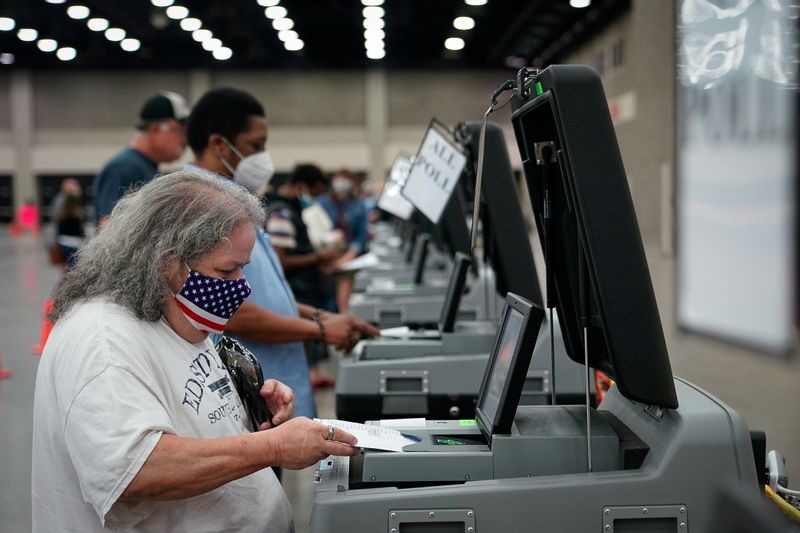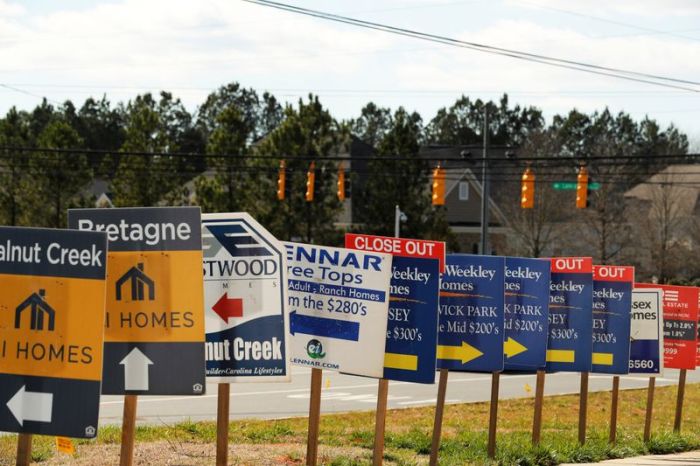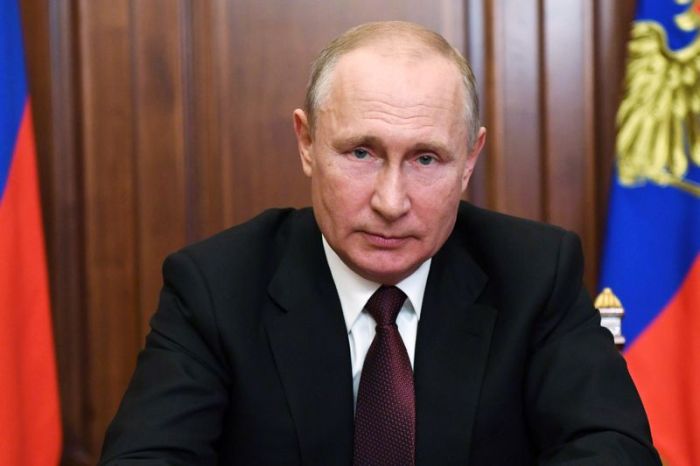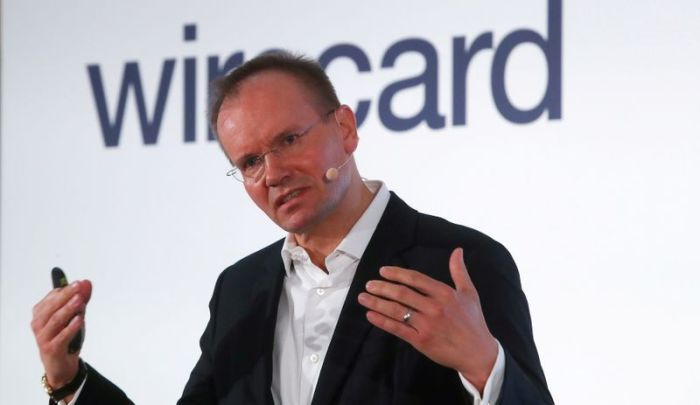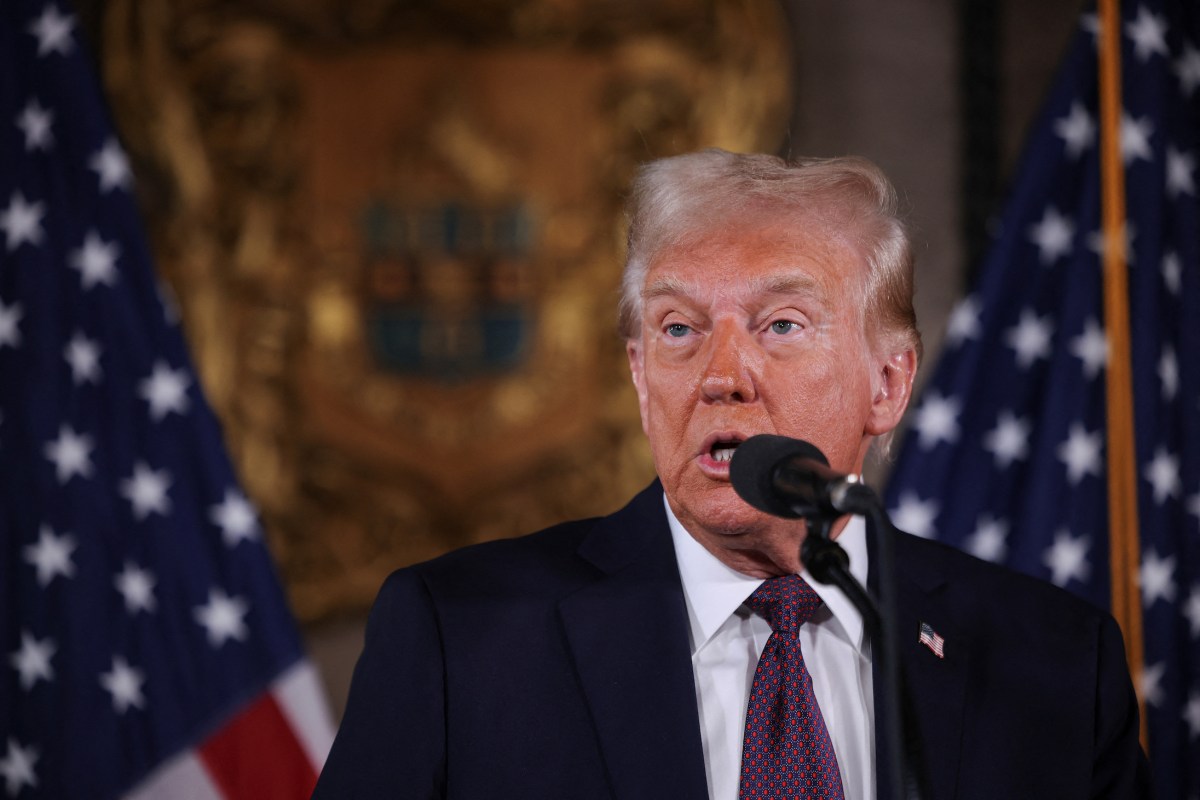(Reuters) – Voters in Kentucky and New York cast ballots in relatively smooth primary elections on Tuesday that featured few of the problems that marred earlier contests held amid persistent worries about the health risks posed by the coronavirus.
Voters stood in long lines in one of Kentucky’s biggest counties, and some voters in New York complained their polling stations opened late. But the two states were mostly spared the delays and confusion seen earlier this year during elections in Wisconsin and Georgia.
New York and Kentucky, which were holding statewide primaries, had encouraged mail-in balloting as a safe alternative to in-person voting, resulting in record numbers of absentee ballot requests. Both also encouraged early voting and cut back on polling locations amid a shortage of poll workers.
Worries about the potential for trouble in Kentucky, where polling sites were cut to fewer than 200 from more than 3,000 normally, mostly did not pan out. Turnout was expected to hit 1.1 million, said Kentucky’s Republican secretary of state, Michael Adams. That would smash the record of 922,000 votes cast in the 2008 primary.
“We feel like we had a successful election and kept people safe,” Adams told Reuters, saying voters had multiple options for casting a ballot.
In Jefferson County, the state’s most populous and home to its biggest city, Louisville, voters moved easily for most of the day through the cavernous exhibition center used as the county’s only polling place.
“It’s really been fairly smooth,” said Louisville Councilwoman Keisha Dorsey, a Democrat who had pushed for more polling places and turned up before dawn to help older and disabled voters make it from the parking lot to the polling center.
The doors were reopened briefly in Louisville after the 6 p.m. EDT close to allow a small group of voters waiting outside to cast a ballot, Adams said. Candidates in the Democratic U.S. Senate primary said some voters were stuck in traffic jams and unable to reach the polling place in time.
‘STAY IN LINE!!!’
Waits in lines of more than an hour were reported through much of the day in Kentucky’s second-biggest county of Fayette. County Clerk Don Blevins, a Democrat, said he added two more check-in stations to the original four during the day to try to reduce the delays and ease the lines at the county’s sole polling site.
A competitive Democratic U.S. Senate nominating battle between Charles Booker, a progressive, and establishment choice Amy McGrath drove up voter interest in Kentucky. They are vying to take on Senate Majority Leader Mitch McConnell in November.
“It’s been a steady flow of people all day. We aren’t getting any breaks,” said Blevins, who added the lines also had been slowed by voters who had requested absentee ballots and did not receive them, which in some cases meant they had to fill out more forms to vote.
Nearly 900,000 absentee ballots were issued in Kentucky, the secretary of state’s office said. New York also saw an explosion of interest in absentee ballots, issuing nearly 1.9 million, the board of elections said. In the 2016 primary, about 115,000 absentee ballots were cast.
Susan Lerner, executive director of Common Cause New York, said election monitors had received complaints that a few of New York City’s more than 1,000 polling places opened late, and that voters in some instances were given incomplete ballots.
Late in the day, several New York candidates urged their supporters to stay in lengthy lines of voters that had sprung up in areas of New York City.
“These lines at Yonkers High School and in many places throughout the district are terrible. Stay in line!!!” Democratic candidate Jamaal Bowman, challenging U.S. Representative Eliot Engel, said on Twitter.
There were also primary elections for some congressional, state and local offices in areas of South Carolina, Mississippi, North Carolina and Virginia.
(Reporting by John Whitesides; Editing by Colleen Jenkins and Peter Cooney)

